News
President’s renewable targets possible, says top electrical engineer

By Ifham Nizam
Eighty per cent renewable energy by 2030 is possible if the government is ready to go all out to achieve that target, a senior independent electrical engineer says.
Energy Consultant, former Additional General Manager (COMMERCIAL) Ceylon Electricity Board (CEB) Kanaga Gnana told The Island that battery storage and pumped storage needed to be planned to be implemented as soon as possible.
The government must abolish the import duty and taxes on battery storage both behind the meter and grid storage to make the process economical, he said.
“CEB engineers must strive to achieve the set target instead of repeating that the President’s plan is not viable. It is unfortunate that the planning engineers appeared only to follow wrong advice given by some so-called local experts who wanted them to promote the costly coal power generation. We must keep an open mind and learn from latest developments as regards cost reduction. The CEB should call for quotations for large wind and solar projects of size 100 MW immediately together with storage two to four hours.
Kanagagnan said he believed that the Sri Lanka Sustainable Energy Authority should identify the suitable sites and expeditiously arrange to obtain necessary clearances in an orderly manner so quotations for the projects could be undertaken early.
“Present staff strength at SLSEA needs to be increased and it is vital to set up a Renewable Energy Authority with well-motivated staff. Most of these requirements are only being talked about.”
He also said that steps should be taken to send the CEBEU top members on a training programme so that they would see how transition to renewables was being done in other countries and get first hand training using latest model analysis.
CEBEU President Saumya Kumarawadu said that at present Sri Lanka was at a top level in Asia as well as in the world. According to the long-term generation expansion plan (LTGEP) prepared for the period 2022-2041, by 2030, another 2674 MW of solar and 1113 MW of wind would be added to the system.
“Such a variable renewable energy (VRE) target requires large investments, which were a major challenge for a country like Sri Lanka, given the size of its economy,” he said.
He said for a small electrical grid like Sri Lanka’s without interconnections with other countries, for the generation of VRE through solar available only during day time and through wind of variable nature, the government would have to invest billions of USD upfront to upgrade existing electricity network, to add large battery storage of 1000-1500MW and pumped storage hydro and to develop Smart Grid technologies.
“We should try to achieve a target like this in a very planned and steady manner. We definitely need some low cost firm energy power stations to keep the system stable, to provide electricity at night, and to provide electricity at lower prices,” he stressed.
At the same time the loss due to the increased consumption of diesel in the generation of electricity at present, had risen to around Rs. 200 billion in five years. All of this was due to the reckless decision of the former President Sirisena during his 2015-2020 term, he said.
News
Western Province leads Lanka’s nominal GDP

The Western Province maintained its dominant position in Sri Lanka’s economy in 2023, accounting for the largest share of the country’s nominal GDP at 43.7%. However, this represents a slight decline in its contribution compared to the previous year, according to a statement from the Central Bank of Sri Lanka (CBSL).
The Western Province’s economic influence was particularly strong in the Industry and Services sectors, where it led the charge. Despite this, other provinces, such as North Western and Central, also made significant contributions, securing the second and third spots, with shares of 10.9% and 10.3%, respectively.
In a positive development, the shares of several provinces, including Central, North Central, Northern, and Southern, increased in 2023 compared to the previous year. CBSL noted that while all provinces saw growth in their nominal GDP, the pace of expansion slowed relative to 2022.
Agriculture also saw notable regional contributions. North Western Province led the sector with a 19.6% share of the national agricultural output in 2023, followed by Southern (13.5%) and Central provinces (12.4%).
In the Industrial sector, the Western Province continued to dominate with a commanding 48.7% share of total industry activities. North Western and Central provinces contributed 12.3% and 9.3%, respectively, rounding out the top three.
Services activities were similarly led by the Western Province, which accounted for 45.9% of the national total. Central Province followed with 10.4%, while Southern Province secured 9.9% of the Services sector’s contribution.
News
Cardinal calls an end to corruption, lawlessness
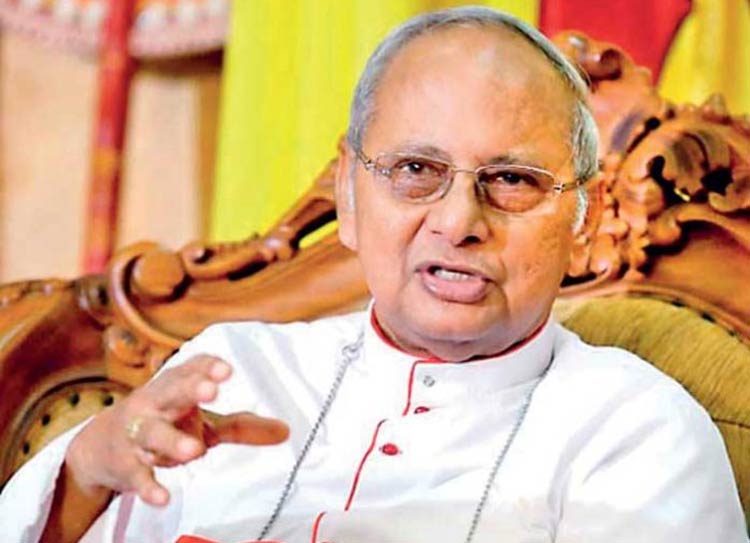
(UCAN): Cardinal Malcolm Ranjith has called for a Sri Lanka free from corruption and lawlessness, emphasizing the urgent need for systemic change.
“Corruption and lawlessness have spread throughout the country due to the wrong economic practices of previous governments,” Ranjith said, and hoped the new government “would bring about a positive transformation.”
“Nowadays, many people living in our country are wondering how even to celebrate Christmas and find their daily meals,” he added.
Speaking to the media on 19 December, the Cardinal urged Catholics to remember the less fortunate this Christmas, encouraging families to open their homes and embrace the poor during the holiday season.
“I request all our Catholic families to invite a poor family in your neighborhood to your home this Christmas and share a meal,” Cardinal Ranjith said.
He suggested they could provide lunch to a family or books and clothing for the children of the poor.
The Catholic Bishops’ Conference issued a special Christmas message that said the problem of poverty can only be alleviated by creating a fair economic structure.
“Creating this environment in our country requires the sincere commitment of every individual,” the Bishops said in their 18 December statement.
Meanwhile, the Coconut Development Authority announced that Cardinal Ranjith will subsidize the government’s purchase of coconuts from Church-owned plantations in response to the national shortage and high coconut prices.
Suranimala Gunawardena, a rights activist campaigning against political corruption, said former politicians had misused millions of rupees from the President’s Fund.
Nalinda Jayatissa, the Chief government Whip and Minister of Health and Mass Media, revealed this in Parliament on 17 December.
He said 36 former parliamentarians had received millions of rupees from the President’s Fund, from 2005 to 2024.
“This is the fund for people with critical illnesses, such as those needing heart surgery or cancer treatment. It is very difficult to raise 100,000 rupees [$347] for a patient, but former politicians have taken millions from this President’s Fund,” Gunawardena told UCA News.
He said those in power and with resources were receiving favourable treatment and often evading the consequences of their actions.
“The less fortunate face harsher punishment for similar offenses, and this disparity undermines justice, perpetuating a sense of unfairness,” Gunawardena said.
He said the law must be applied equally to all, regardless of wealth or status.
Rights activists emphasized the need for a fair economic structure to ensure equality, as true progress requires equitable resource distribution.
News
Prime Minister and ADB Country Director discuss educational reforms
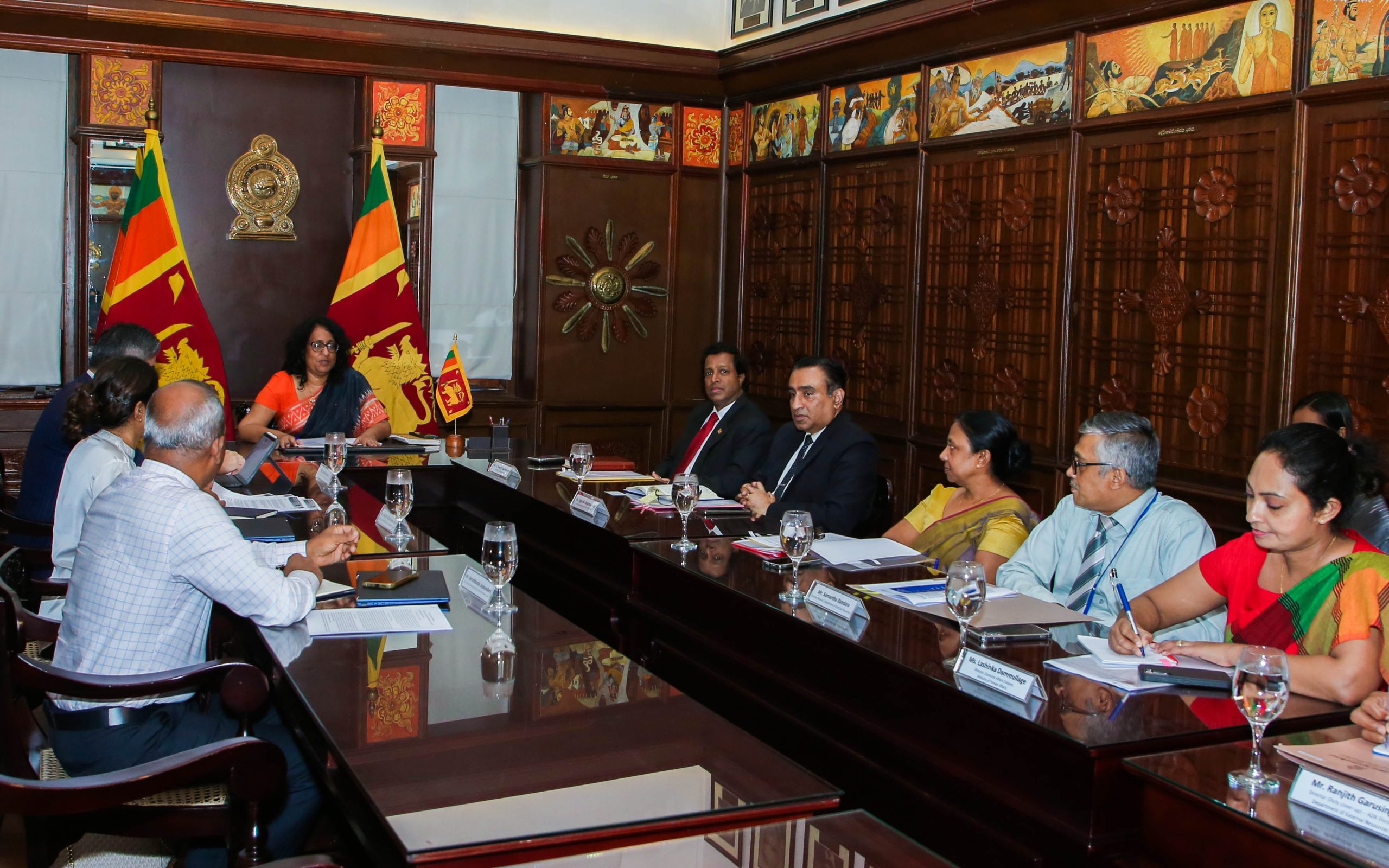
The Prime Minister of Sri Lanka, Dr. Harini Amarasuriya, met with Mr. Takafumi Kadono, Country Director of the Asian Development Bank (ADB) Sri Lanka Resident Mission, at the Prime Minister’s Office on Friday [20]. The discussions underscored ADB’s role as a key development partner and highlighted the importance of collaborative efforts in advancing Sri Lanka’s national development priorities.
During the discussion Prime Minister emphasized the importance of developing school infrastructure, teacher training, and assessment mechanisms. ADB reaffirmed its commitment to addressing challenges in the education sector through ongoing projects, including initiatives to enhance teacher and principal training.
The Sri Lankan delegation at the meeting included Pradeep Saputhanthri, Secretary to the Prime Minister; . Nalaka Kaluwewe, Secretary of the Ministry of Education, Higher Education, and Vocational Education; Ms. Sagarika Bogahawatta, Additional Secretary to the Prime Minister; . Samantha Bandara, Director General; Ranjith Garusinghe, Acting Director of the ADB Division; Ms. Dananji Amarasinghe, Assistant Director of the ADB Division at the Department of External Resources, Ministry of Finance; and Ms. Lashinka Dammullage, Director of Economic Affairs at the Ministry of Foreign Affairs.
[Prime Minister’s Media Division]
-
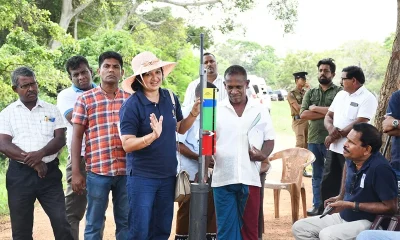
 News6 days ago
News6 days agoInnovative water management techniques revolutionising paddy cultivation in Lanka
-
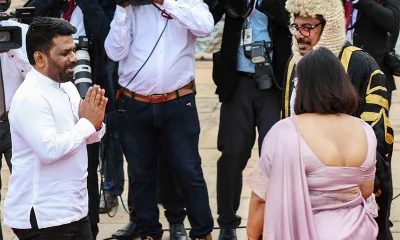
 Features5 days ago
Features5 days agoThe Degree Circus
-
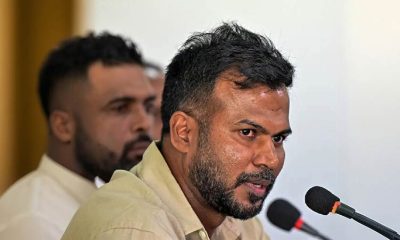
 Sports3 days ago
Sports3 days agoSri Lanka to mend fences with veterans
-
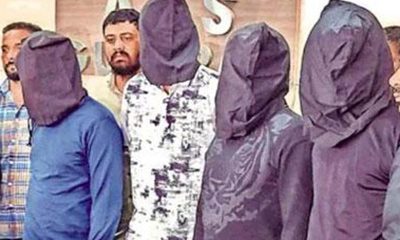
 News7 days ago
News7 days agoArrest of Lankans on terrorism charges in Gujarat: Muslim grouping renews campaign for their release
-

 Opinion5 days ago
Opinion5 days agoHas ‘Compass’ lost direction?
-

 Editorial6 days ago
Editorial6 days agoA supreme irony
-
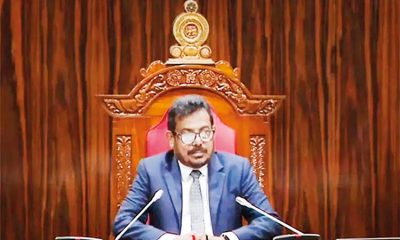
 Opinion6 days ago
Opinion6 days agoDocs, Speakers and Profs
-
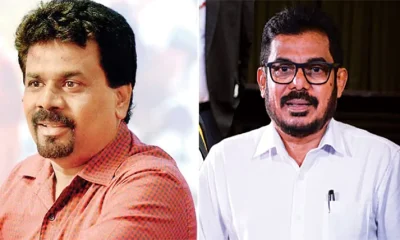
 Features6 days ago
Features6 days agoGovt.’s anti-corruption agenda gets boost











